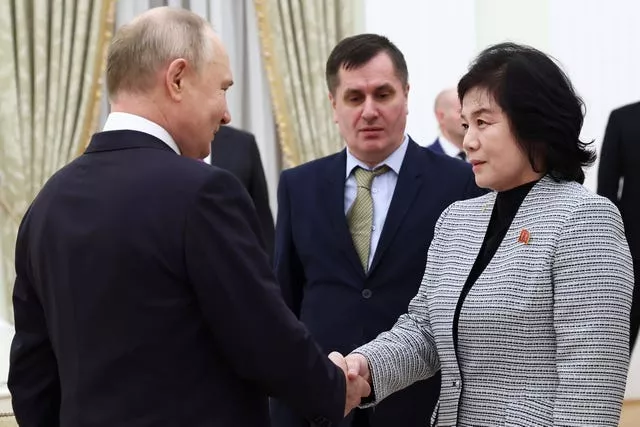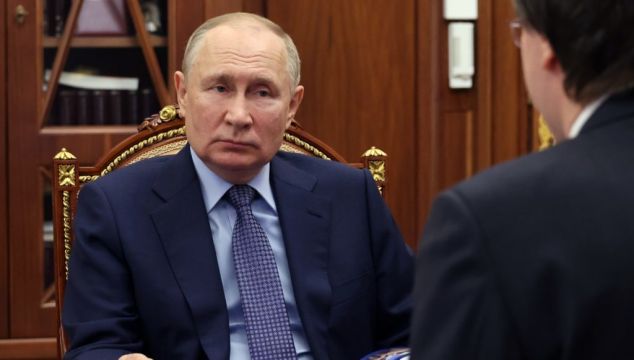North Korea has said Russian president Vladimir Putin has expressed his willingness to visit the country at an unspecified “early date”, as the two nations continue to align in the face of their separate, intensifying confrontations with the United States.
The North Korean Foreign Ministry highlighted Mr Putin’s intent for a visit following foreign minister Choe Son Hui’s meetings with the Russian president and his foreign minister Sergey Lavrov in Moscow last week.
The ministry said in a statement published by state media on Sunday that the two countries agreed to further strategic and tactical co-operation to establish a “new multi-polarised international order” – a reference to their efforts to build a united front against Washington.
Russia expressed “deep thanks” to North Korea for its “full support” over its war on Ukraine, the North Korean ministry added.
Mr Putin had already confirmed his willingness to visit the capital, Pyongyang, at a convenient time during his meeting with North Korean leader Kim Jong Un in Russia’s Far East in September.

One of the few world leaders openly supporting Mr Putin’s war on Ukraine, Mr Kim has been actively boosting the visibility of his ties with Russia in an attempt to break out of diplomatic isolation and strengthen his footing, as he navigates a deepening nuclear stand-off with Washington, Seoul and Tokyo.
In a separate statement on Sunday, the North’s Foreign Ministry condemned the UN Security Council for calling an emergency meeting over the country’s latest ballistic test, which state media described as a new intermediate-range solid-fuel missile tipped with a hypersonic warhead.
The ministry said the test firing on January 14th was among the country’s regular activities to improve its defence capabilities and that it did not pose a threat to its neighbours.
South Korea urged the Security Council on Thursday “to break the silence” over North Korea’s escalating missile tests and threats.
Russia and China, both permanent members of the council, have blocked US-led efforts to increase sanctions on North Korea over its recent weapons tests, underscoring a divide deepened over Russia’s war on Ukraine.
The alignment between Pyongyang and Moscow has raised international concerns about alleged arms co-operation, in which the North provides Russia with munitions to help prolong its fighting in Ukraine, possibly in exchange for badly needed economic aid and military assistance to help upgrade Mr Kim’s forces.
Both Pyongyang and Russia have denied accusations by Washington and Seoul about North Korean arms transfers to Russia.







